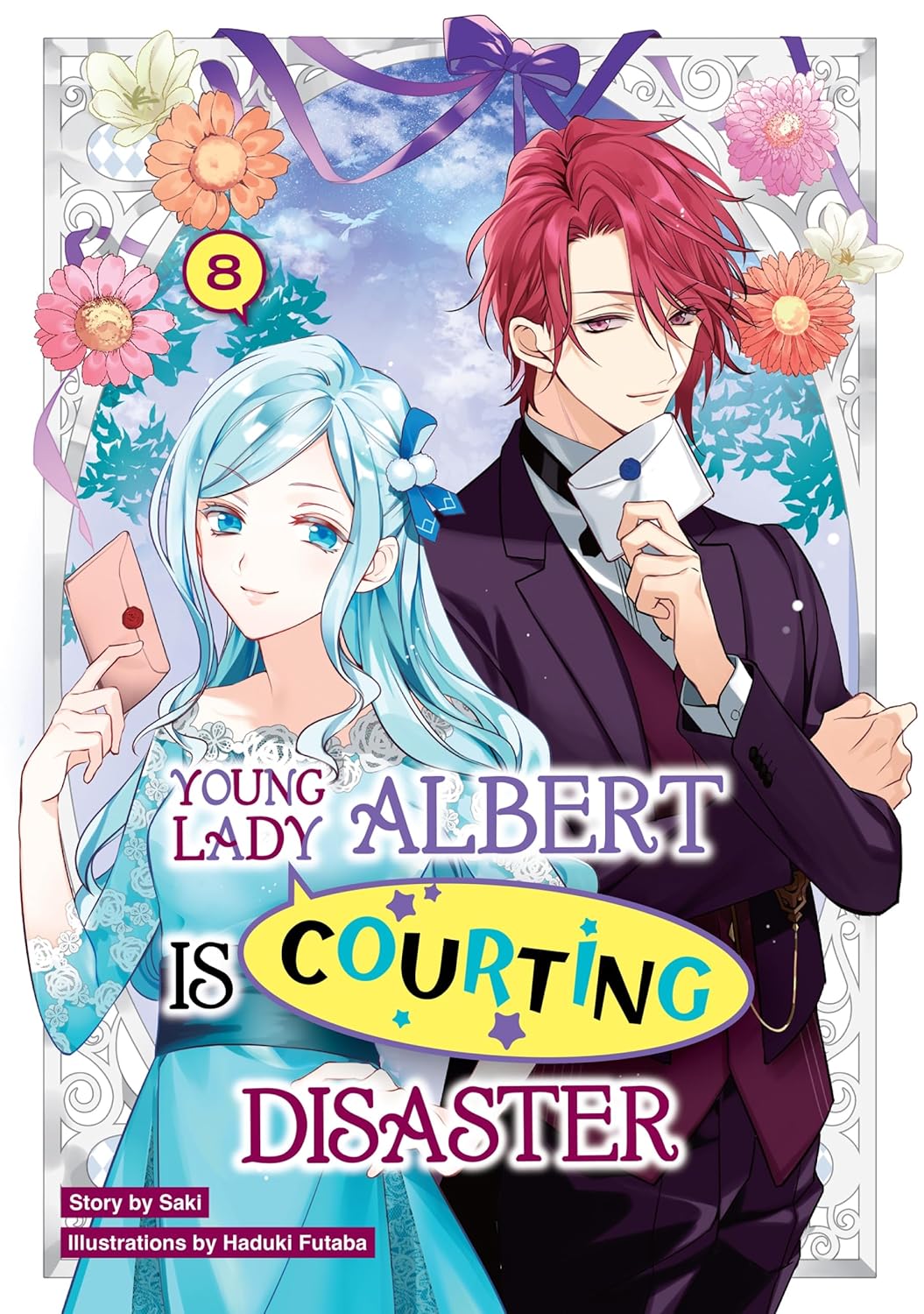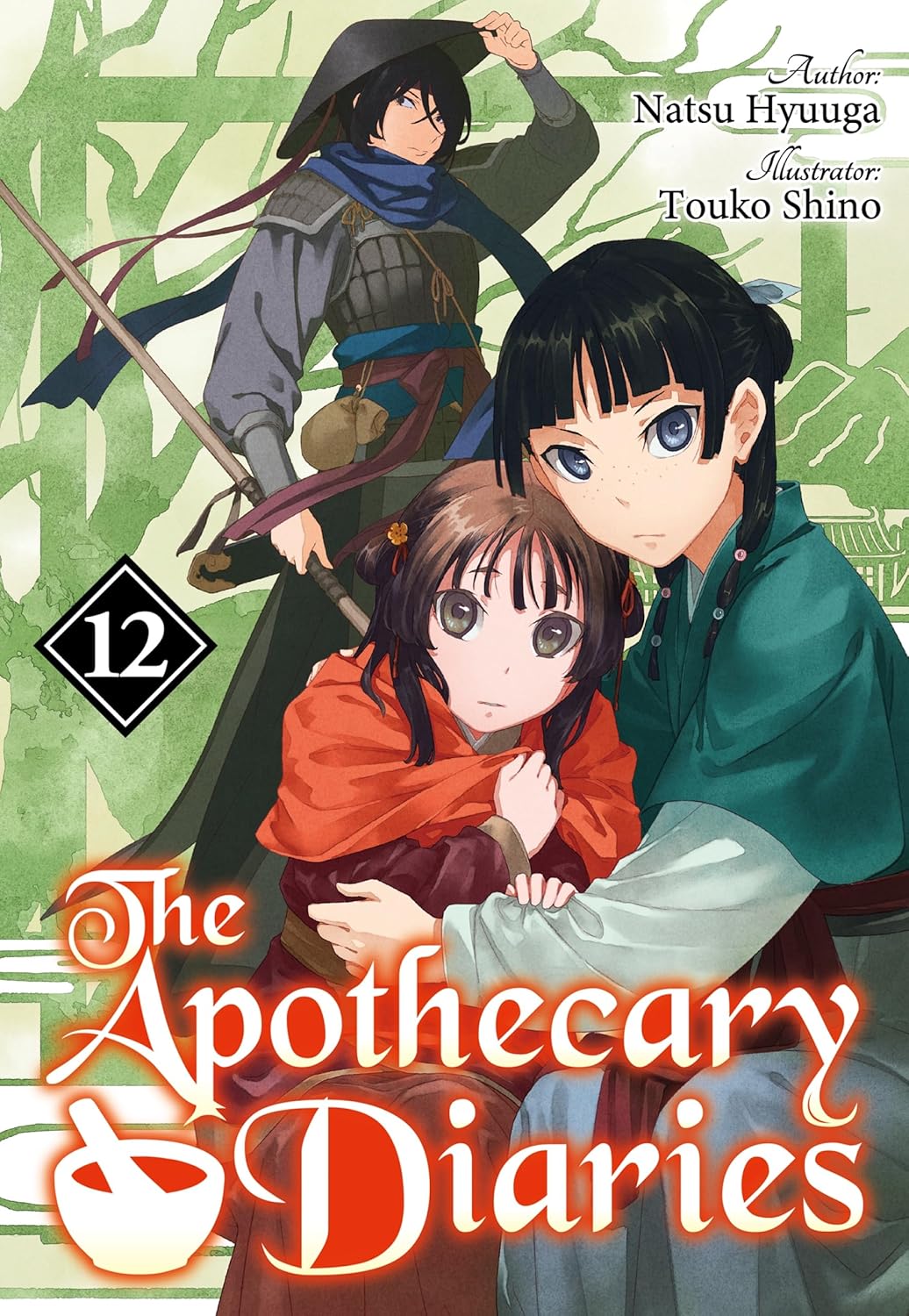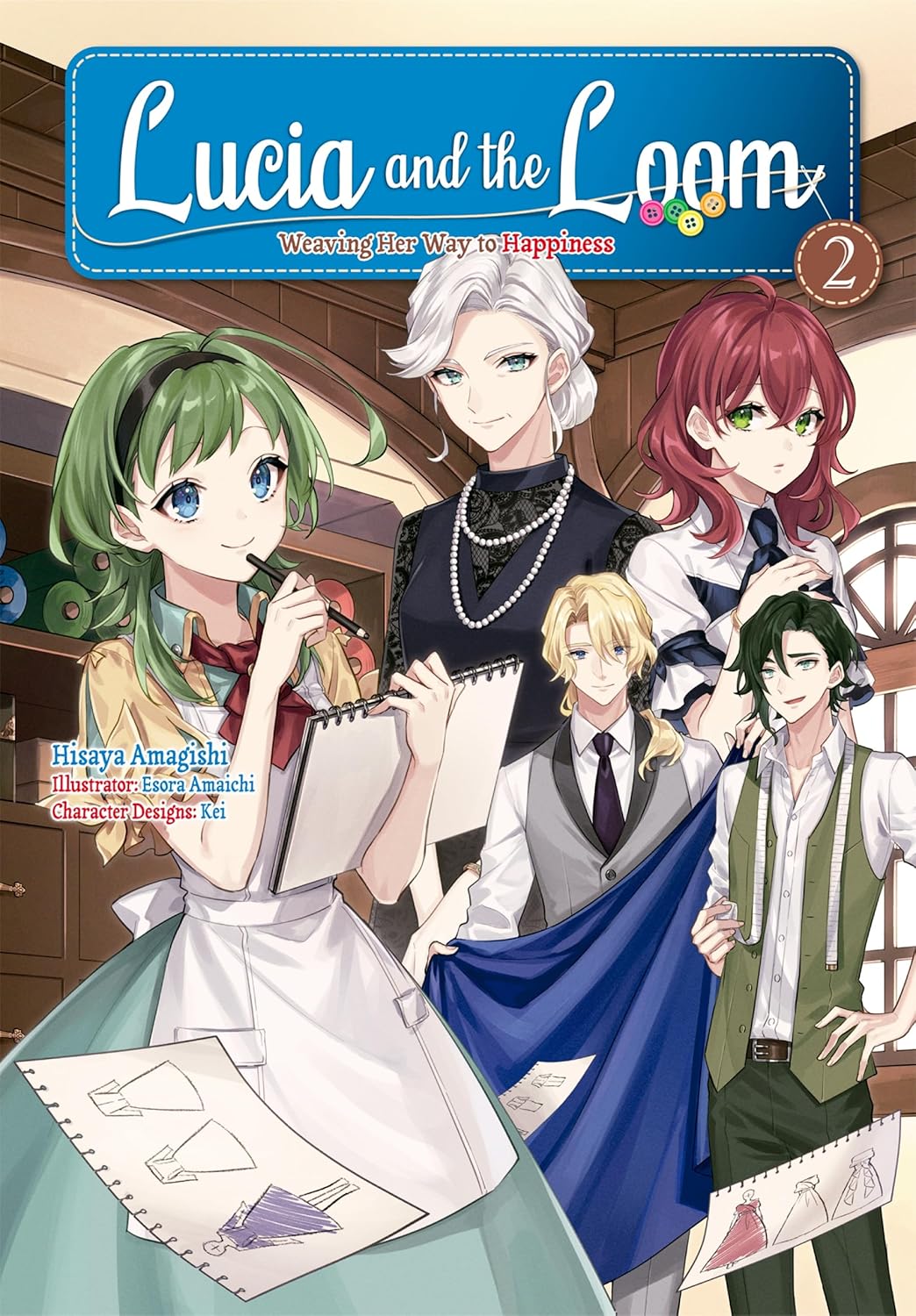By Saki and Haduki Futaba. Released in Japan as “Albert-ke no Reijō wa Botsuraku o Goshomō Desu” by Kadokawa Beans Bunko. Released in North America by J-Novel Heart. Translated by Ray Krycki.
Usually when I say that a final volume of a series is doing what I call a “victory lap”, I don’t mean it literally. And yet that’s exactly what happens here, as we join the main cast as they take a tour of every major character we’ve met before, every major place we’ve visited, and have all the possibly comedy antics you could want. Honestly, probably more than you’d want. It’s been so long since the first volume that I’d forgotten how particularly thick-headed Mary can be when she wants to ignore things that troubled her, A lot of the humor near the start of this book is her having to be reminded of all the bad things that happened to her in previous books, and her having completely forgotten everything about them entirely. That said, she and Adi at least have an excuse: Their lovely daughter, who is the spitting image of her mother both in appearance and attitude and is ready to take the world by storm.
This volume takes place six years after the previous one. Roxanne, Mary and Adi’s daughter, has a mission. She’s written invitations for a big party where her mother has an important announcement, and now she plans to deliver them all by hand in person – by herself. Needless to say, this requires strategy, so Mary and Adi seemingly agree while also secretly tailing her. She starts off visiting the royal palace, where we meet Patrick and Alicia’s son Felix, who if nothing else proves that Alicia does actually seem to love Patrick more than Mary – romantically, at least. Felix joins Roxanne in her solo (?) jaunt, and Patrick and Alicia join Mary and Adi in tailing them. We then get to see most of the major characters from previous books, including Parfette and Gainas’ newborn twins (it makes sense they’d take six years to get around to this). But what *is* Mary’s big news at the party?
This is pretty much one of those “everyone is going to be in male/female pairings by the end of it” series, so it’s rather surprising that the most interesting parts for me was when it went outside that bubble. Helene, the single mother from the last book, has moved to Albert Country, and is being courted by BOTH of Mary’s brothers, as well as their attendant. What’s more, it’s made clear from discussions about the brothers that they function as a unit far better than they ever would when competing. It’s no wonder this is the one romance left up in the air – a woman marrying three men would likely be one bridge too far for most readers of this genre. Then there’s Mary and Alicia, who manage to reaffirm their relationship and also admit that they love each other – and that they are NOT the villainess and heroine in an otome game, something Alicia has to sort of pound into Mary’s head. They’re still my favorite part of the series.
The ending twist promises that otome game villainesses may continue into the next generation, but we’re not going to be seeing that. Let’s be content with Mary Albert, drill-less, happily married, with a lovely daughter and another child on the way. She failed spectacularly in trying to engineer her doom. But then, so did Katarina Claes, who I remind everyone debuted only one month before this series in Japan.



